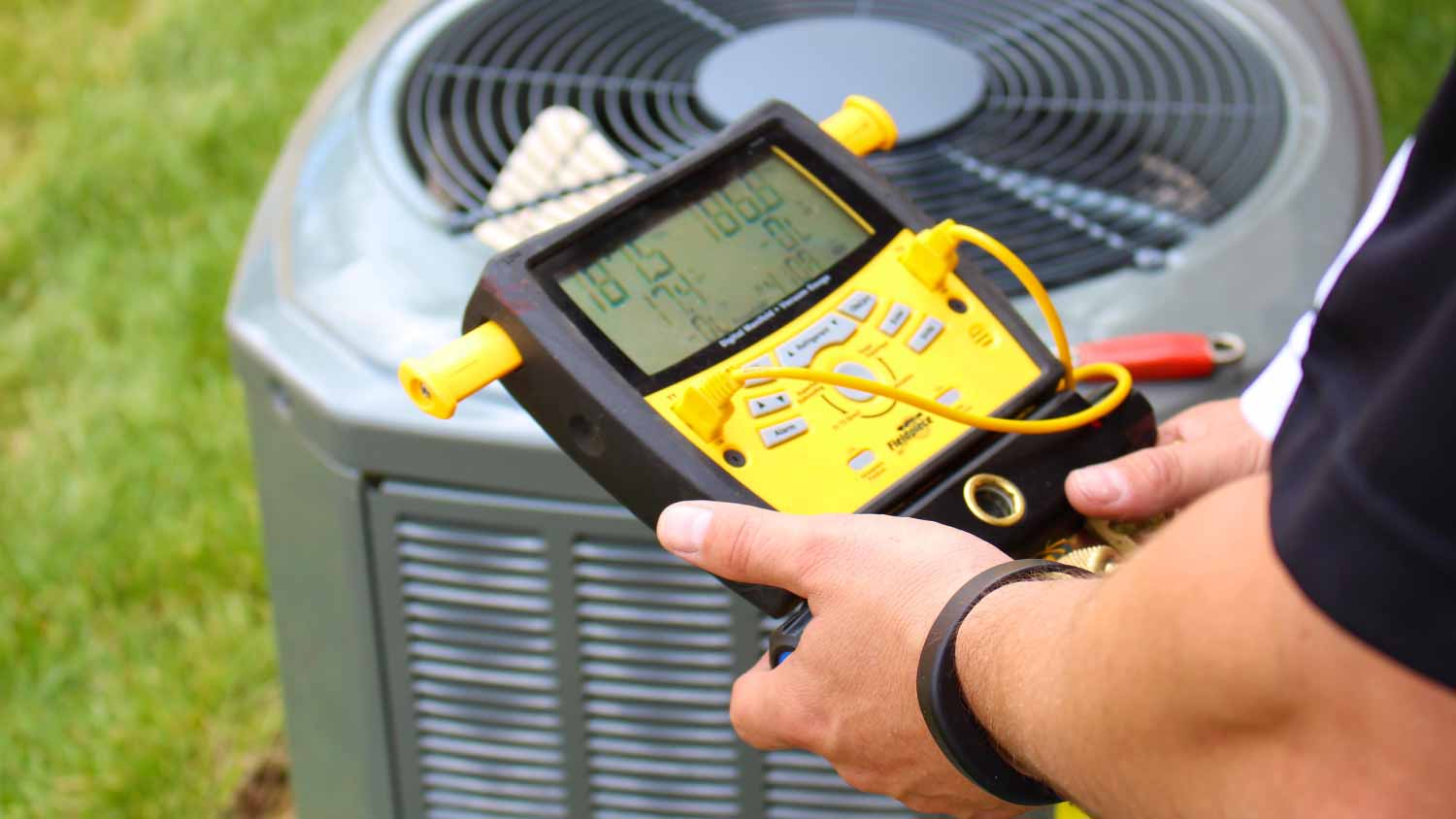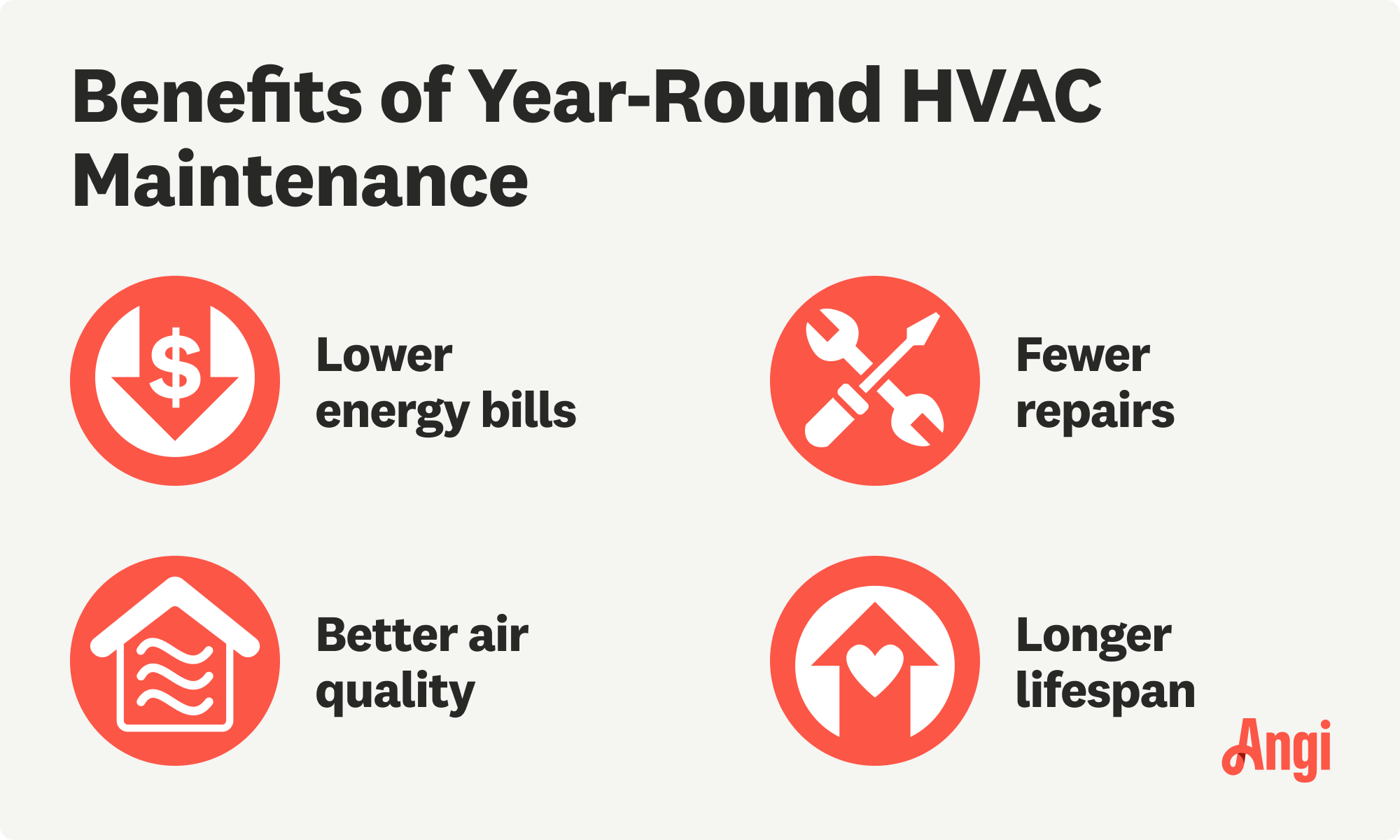
If your air conditioner won’t turn on or makes chattering noises, you might have a bad contactor. Learn more about AC contactor replacement costs in this guide.
Hint: It’s not the Ghostbusters


Nothing can send a shiver down your spine (literally) like your HVAC system breaking down in the dead of winter. If your HVAC unit malfunctions, you’ll need to decide who to call to check the HVAC unit.
When you need help with your heating or air conditioning system, call an HVAC technician to inspect, diagnose, and perform any repairs. Let’s dig into when and why you should hire an HVAC pro to restore your home to its usual temperature.
Hiring a professional HVAC technician for installations or repairs ensures your HVAC system is in the best hands. Here are some benefits of hiring a qualified local HVAC technician:
They can diagnose, provide estimates, and repair issues.
They’ll follow local regulations for HVAC systems.
They have top-notch tools to perform repairs efficiently.
Their work likely contains a warranty in case something goes wrong.
They’ll follow safety protocols to protect themselves and your property.
We don’t recommend that homeowners repair their HVAC units due to the high risk nature of working with this complex and essential system. Any task that requires replacing major parts or taking apart the unit should be handled by a licensed professional with years of experience to ensure the repairs are done correctly. This recommendation is especially true if you’re unsure of the cause of the issue, in which case an inspection is helpful to determine next steps.
You may be able to DIY HVAC repairs if the fixes are simple and require minimal tools or expert knowledge. For example, you can replace AC air filters yourself.
Proper HVAC maintenance is essential for your safety. A lack of regular professional maintenance can lead to carbon monoxide leaks, refrigerant leaks, or electrical malfunctions, which all pose a serious threat to your health and home.
The cost of an HVAC inspection ranges from $50 to $700, depending on the size of the unit, the issue, and whether it’s an emergency or not.

Although it may be tempting to hire a handyperson to save money on repairs, a licensed HVAC specialist is your best bet to ensure effective repairs. These pros are trained to accurately diagnose problems and provide solutions they can likely fix on the spot, reducing the likelihood of recurring issues and more money spent down the line. Plus, they already have access to specialized tools and equipment that may not be part of a handyperson’s toolkit.
A professional HVAC specialist is trained to work with potentially hazardous materials, such as refrigerants, so they’re more likely to follow safety protocols to protect themselves and others. A professional will also be aware of your area’s regulations and codes regarding HVAC units, so any repairs or installations are done properly.

Technicians typically begin by inspecting the entire HVAC system, including its indoor and outdoor components. This first look helps them identify any visible issues or signs of wear and tear. Next, they’ll check the thermostat to make sure it accurately reads and responds to temperature settings.
HVAC pros will also look at your air filters, ductwork, cleaning components, refrigerant levels, and electrical connections before moving on to the system’s fans, motors, and safety controls. Once an issue is spotted, the tech will know whether a part needs to be ordered and replaced or whether you need components cleaned up or adjusted.
From average costs to expert advice, get all the answers you need to get your job done.

If your air conditioner won’t turn on or makes chattering noises, you might have a bad contactor. Learn more about AC contactor replacement costs in this guide.

The average cost of an electric furnace ranges between $1,700 and $7,000, depending on the size, ductwork, and complexity.

Exposed ductwork can be a smart choice even beyond aesthetics. Fortunately, exposed ductwork costs are relatively low, and easy access keeps repair costs to a minimum.

With so many types of furnaces out there, how do you know which one is best for you? Explore our guide to the five main types and get your home warmed up.

Thinking about installing a heat pump in your home? Learn about the different types of heat pumps and the options you can choose from in this guide.

You’ll need to get creative if you want to run your portable AC in a windowless room. Here’s how to vent a portable air conditioner without a window.